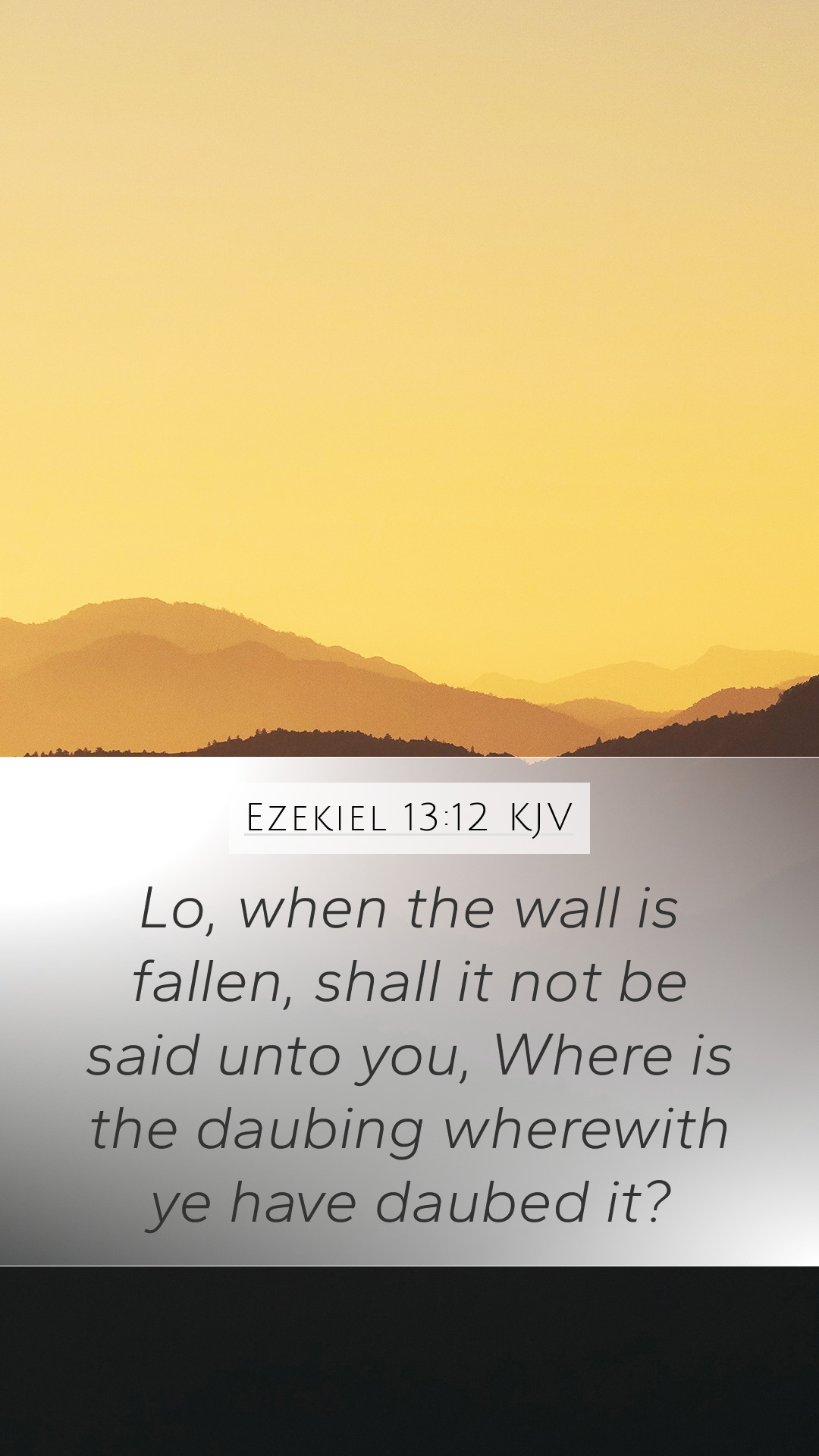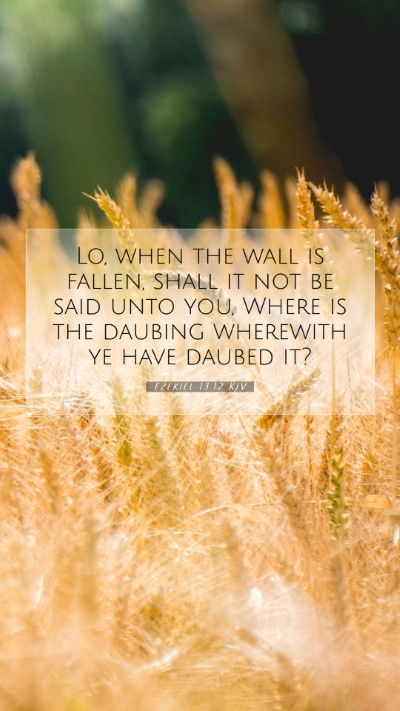Bible Verse Meaning: Ezekiel 13:12
Verse Text: "And, lo, when the wall is fallen, shall it not be said unto you, Where is the daubing wherewith ye have daubed it?" (Ezekiel 13:12, KJV)
Understanding Ezekiel 13:12
This verse appears in a prophetic context where God, through the prophet Ezekiel, addresses false prophets and their misleading prophecies concerning the safety and security of Jerusalem. This is a significant passage as it illustrates the consequences of misleading information and the superficiality of false assurances.
Contextual Overview
The chapter is a condemnation of the false prophets who have spoken comfort to the people of Israel. They have proclaimed peace and safety when, in reality, judgment is imminent. The reference to a wall that has fallen signifies a breakdown in spiritual and physical protection; the "daubing" refers to the deceptive attempts to cover the failures with mere superficial remedies.
Commentary Insights
-
Matthew Henry: Henry emphasizes that the daubing signifies the superficial ways in which false prophets and their followers attempt to mitigate the truth of impending judgment. They provide a facade that lacks any real foundation. When the wall falls, the vulnerability of the people will be laid bare, revealing the ineffectiveness of the false prophecies.
-
Albert Barnes: Barnes notes that the question posed by God through Ezekiel highlights the futility of relying on human interpretations over divine warnings. He asserts that the destruction of the wall and the ultimate exposure of their false security serves to remind the people that true safety does not come from human assurances, but from faith in God and adherence to His true word.
-
Adam Clarke: Clarke elaborates on the metaphorical aspect of the wall and the daubing, suggesting that the wall represents a false sense of security built up by the prophets' fabricated messages. When destruction comes, the lack of real protection will become evident, underscoring the urgency for the people to recognize the truth and turn back to God.
Key Themes
- Spiritual Vulnerability: The fallen wall symbolizes the imminent judgments faced by those who place their trust in invalid prophetic assurances.
- The Importance of True Prophecy: This passage serves as a reminder to discern true messages from false ones, emphasizing the need for true guidance from God.
- Impending Judgment: The metaphor highlights that judgment cannot be evaded through superficial or insincere repentance.
Cross References
- Ezekiel 12:22-25 - Discusses false prophecies about peace.
- Jeremiah 6:14 - Condemns those who heal the wounds of people superficially.
- Matthew 23:27-28 - Jesus speaks to the hypocrisy of the Pharisees, similar to false prophets.
Application for Modern Readers
This verse has significant implications for individuals, leaders, and communities today. Here are a few key applications:
- Discernment: Understand the importance of discernment in ministry and in life—ensure that teachings align with biblical truth.
- Authenticity: Strive for authenticity in one's spiritual life, avoiding superficial practices that do not lead to real transformation.
- Seeking True Assurance: Turn to the Scriptures and to God for true assurance of safety and security, rather than relying on fallible human assurances.
Conclusion
Ezekiel 13:12 serves as a crucial reminder of the importance of recognizing true counsel and the dangers of resting on false securities. It calls believers to seek genuine understanding of Scripture and to uphold the truth of God’s Word in all aspects of life.


